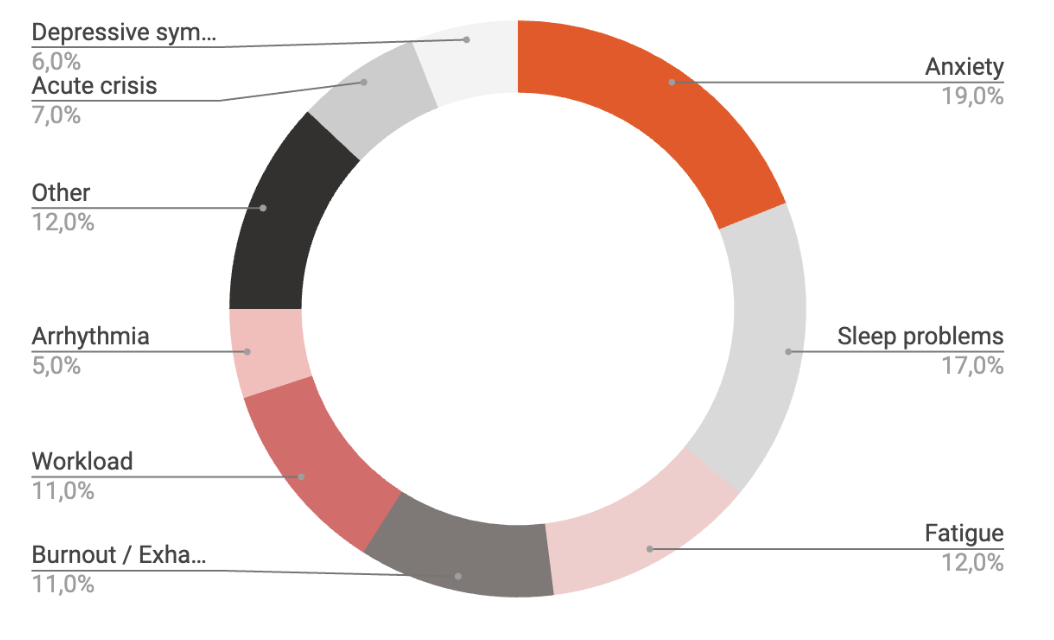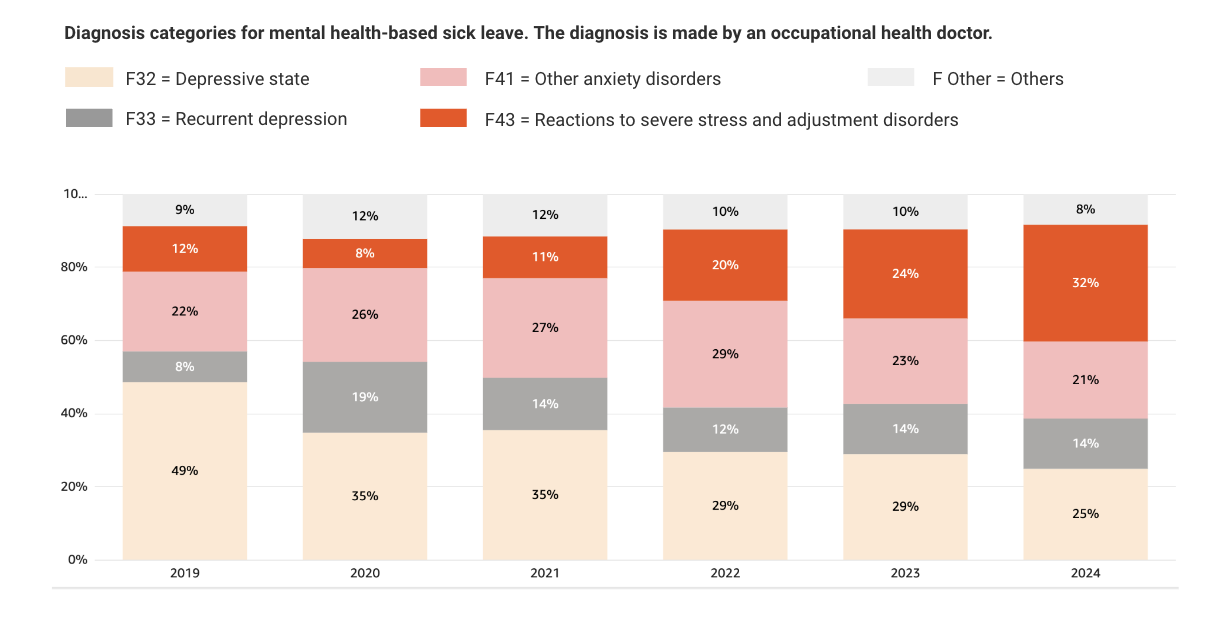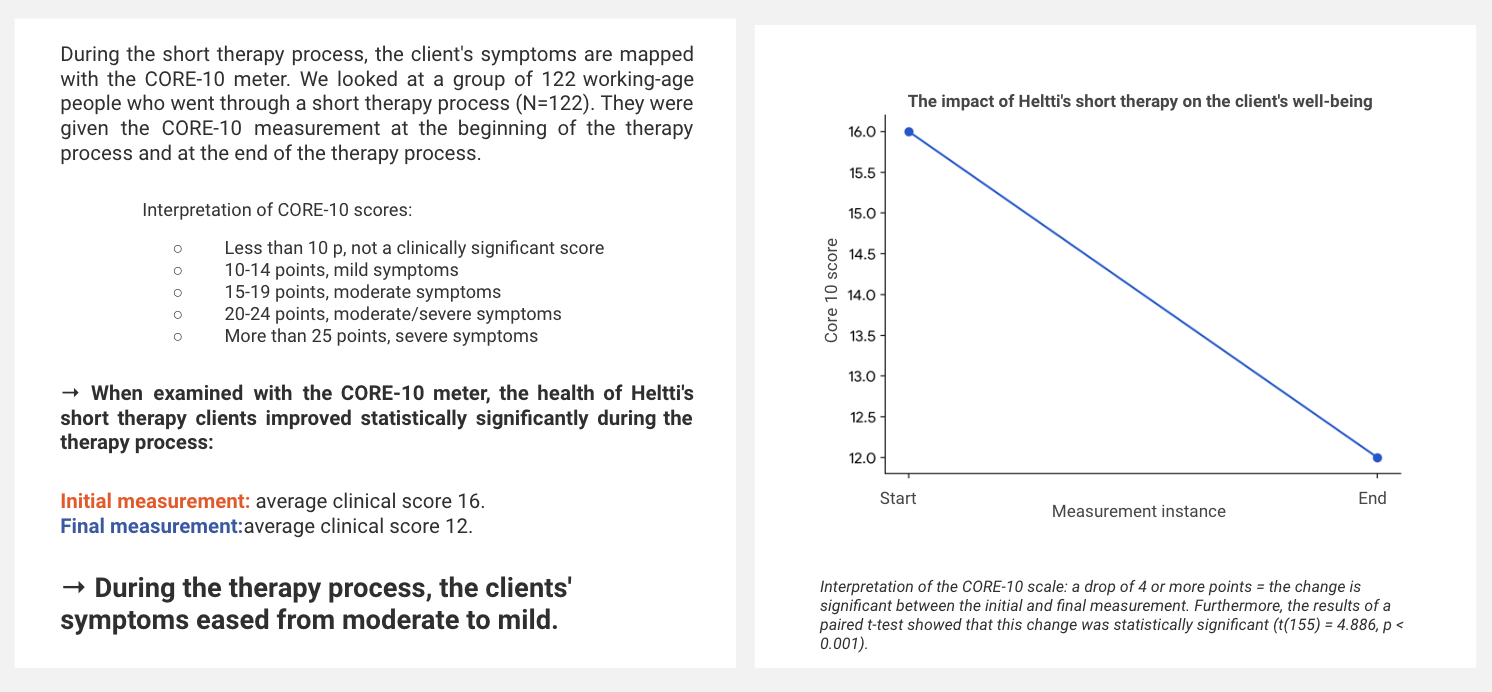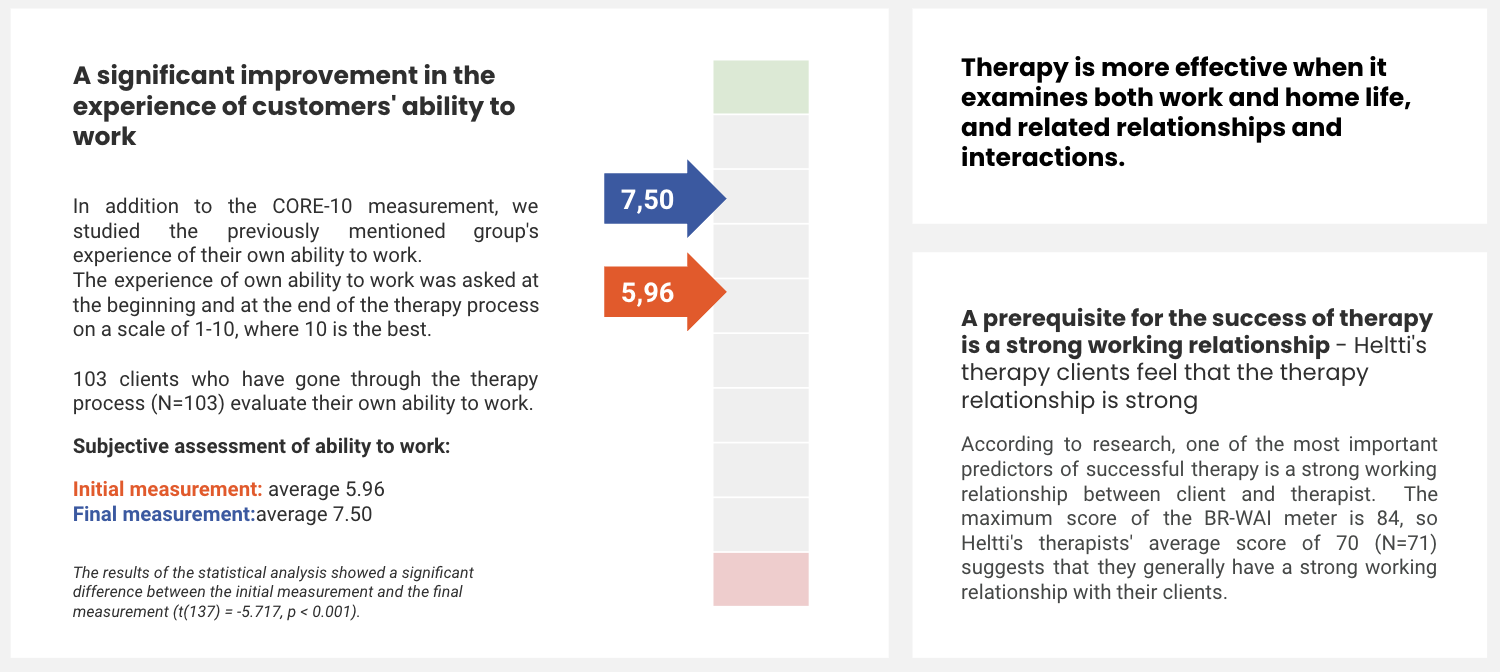Working Life is Under Pressure. Work has lost its role as a source of strength in everyday life. Heltti’s annually published Mental Health Data Report for Knowledge Work once again provides fresh insights into sick leaves due to mental health issues among knowledge workers and their underlying causes. Additionally, the report offers positive news about the effectiveness of short-term therapy—the monitored group (N=122) experienced a reduction in symptoms from moderate to mild, and their perception of their own work ability improved significantly.
Heltti’s latest Mental Health Data 2024 report highlights the mental health challenges faced by knowledge workers in Finland. The increase in mental health-related absences has been reported for several consecutive years. According to Heltti’s latest occupational health report, which specializes in knowledge work, this trend continues—during January to August of this year, the share of mental health-related absences has been higher than in any previous year.
64% of Sick Leaves among Knowledge Workers are now due to Mental Health Issues – Reactions to severe stress are the most common cause
- Record-Level Mental Health Absences: In January-August 2024, mental health-related absences accounted for 64% of all sick leaves.
- Most Common Reason for Contacting Occupational Health: Anxiety remains the leading reason for contacting occupational health services (19%). Additionally, 29% of contacts relate to fatigue (12%) or sleep difficulties (17%).
“It is important to understand and remember that anxiety, fatigue, or sleep difficulties impact not only the workplace but also all other areas of life, affecting both individuals and their social relationships and family life. Most often, by the time an individual contacts occupational health, the situation has persisted for some time and begins to interfere with daily life—few reach out due to short-term fatigue or anxiety,” notes Elina Sivu, Heltti’s Chief Occupational Health Physician and Medical Director.
- Changes in Mental Health Diagnoses: From 2019 to 2023, the most common reason for written mental health-related sick leaves was depression. This year, reactions to severe stress and adjustment disorders (F43) have become the most common reason.
“The general global situation, uncertainty about personal livelihood, increasing job demands, and changes in the nature of work challenge people’s resilience and manifest differently depending on the individual. In occupational health consultations, this is often seen as the identification of an external factor to which the patient is reacting with various symptoms,” explains Elina Sivu.


Short-Term Therapy provides relief – during the therapy Process, Clients’ symptoms improved from moderate to mild
The effectiveness of short-term therapy provided by Heltti’s psychologists and psychotherapists was assessed through the initial and final measurements of over a hundred (N=122) clients’ therapy processes.
“Using the CORE-10 scale, the symptoms of short-term therapy clients reduced from moderate to mild levels. Additionally, clients’ perception of their work ability significantly improved during the therapy process,” says Katri Kanninen, Psychotherapist, Doctor of Psychology, and Development Director of Mental Health Services at Heltti.


“We are living in challenging times—companies’ challenges, such as layoffs and restructuring negotiations, as well as the tightened economic situation, are reflected in the decline of employees’ mental well-being. The prevailing uncertainty in general and in working life, the changing nature of work, and the evolving rules of the game in the workplace affect the well-being and resilience of knowledge workers both at work and at home. Work has lost its role as a source of strength in everyday life.
Download the full report here
Download the latest Mental Health Data Report for Knowledge Work, where you can dive deeper into the themes presented in this press release.
For more information, please contact:

Katri Kanninen
Doctor of Psychology, Psychotherapist, Director of Mental Health Services at Heltti
katri.kanninen@heltti.fi
040 741 7795

